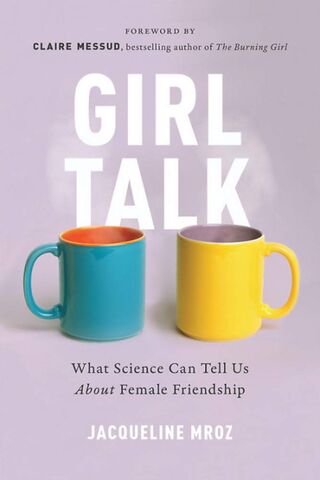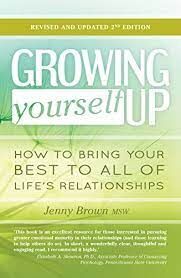Friends
Friend Shifts Go Along With Friendship
Quality bonds boost health, frustrating ones may need a pause.
Posted April 29, 2022 Reviewed by Tyler Woods
Key points
- Females of all ages have been recipients of indirect, passive-aggression known as "mean girl" behavior.
- Healthy friendships stave off cognitive decline, improve our immunity and lower our stress.
- Reflective listening skills aid us in creating quality connections throughout life.
- Measuring social capital through online likes and comments hinders individual growth.
Women, especially mothers, have never needed a Sunday in May to honor and support one another. They’ve done so from Biblical times through social media today.
“Friendship between women can be a complicated psychological dance,” writes Jacqueline Mroz in Girl Talk: What Science Can Tell Us About Female Friendship. “We love our friends, but we can also feel conflicted about them.”1

Mroz delves into evolution, science, and how men and women view friends differently. Men tend to bond through clubs and sports, not always needing to maintain their relationships as women do.
Challenges of Female Friendship
Most females, as young as kindergarten, tell of being emotionally pushed away or the recipient of mean behavior, depicted in the 2004 Mean Girls movie written by Tina Fey.2
According to Mroz, “Indirect aggression maximizes the harm placed on a victim while reducing the risk to the aggressor because they remain anonymous and avoid being attacked back.”
From Overcoming Passive-Aggression: When you silence frustrations, anger sneaks out. This damages friendships. Passive-aggressive frenemies include actors with their mixed messages, competitors striving to outdo, dominators who dictate rules or time, juicers who drain, and faultfinders triggering defenses with you-starting sentences.3
Mroz discusses how women’s brains attune to slights and stress. Rumination results. Competition. Self-promotion and disparaging one’s rivals.
Women may tie too much self-worth to friends’ opinions, causing self-doubt. “They’ll tolerate some mistreatment, but if there comes a point where the abuse piles up too much, that could end the friendship,” Mroz writes.
Who Has Your Back?
Overcoming Passive Aggression posed questions to discern friends: Does she make you feel inadequate? Derive pleasure from your misfortune? Lob “I could have told you,” “How could you not know that?” or, “When are you going to realize?” What’s more, when you manage your reactions and soft-start how you feel, does the friend get defensive, more critical, or stonewall? Subtle put-downs don’t build enduring bonds.
Humans can be difficult, with buttons and triggers installed by family-of-origin and other baggage. When those suitcases get too heavy to cart around, sadly, reactive humans project unnecessarily onto others, often those closest.

If you’ve tried to ignore, be friendly, move away from, and gently confront a directly negative or indirect friend, perhaps it's time to pause them.
Your own attachment or companionship needs may tempt you to hang on, but a break from disparaging people who bask in your hardships may help you to see their dysfunction. Healthy friends don’t prove points at your expense nor leave you second-guessing; they add positivity, prop you up when you're down, and take responsibility when they've slighted or hurt you.
Health Benefits of Friendship
Happy friends promote valuable reflective listening, empathy, and joy.
Julianne Holt-Lunstad, PhD, a professor of psychology and neuroscience at Brigham Young University, was the lead author studying how friendship affects brain health. The study found that good friendships lower our risk of cognitive impairment and disease, lead to better immunity, lower stress, blood pressure, heart rate, and cholesterol.4
Columbia University researchers found that the strength of a pregnant woman’s support system is the primary predictor of her mental health. Those expecting and having just delivered babies receive physical help, food and nurturance, practical guidance, and emotional sustenance, writes Abigail Tucker in Mom Genes: Inside the New Science of Our Ancient Maternal Instinct.5
Creating Quality Connections
Women make lifelong friends from high school and college, unions that create girlfriend getaways and bridesmaids there years later to wipe the tears when dreams go astray. Women arrange play dates and attend after-school activities with similar-age friends. Friendships also form through work, networking, religious congregations, and neighborhoods.
To make and maintain quality social relationships:

- Seek connections through shared activities, such as book clubs, sports, community involvement, work commitments, and acts of giving. These provide reasons to share, acknowledge skill sets, and learn new ones.
- Listen more than you speak. Reflectively repeat what the speaker said. “I hear that you're feeling…” or, “If I heard you correctly.” This is a basic skill that's impossible to accomplish with a what-will-I-say-next dialogue forming in your own mind.
- Offer kindness. You can leave someone feeling down or disparaged or fill them with hope and can-do confidence. How will you make a difference in a person’s day? They’ll remember you either way, so pick positive.
- Curb righteous anger for a friend’s frustrations. Some anger can validate a friend's feelings, but too much gets your friend more anxious and riled when she needs encouragement.
- Be respectful of a friend's knowledge and story, known better to them than to you. If you’re too willing to prove your points, it casts you as a know-it-all wrestling too mightily with your friend’s lived experience. Learn more than judge.
- Soft start disagreements. Sandwich a complaint with something affirmation first, layer it with feedback, and end with hope.
Taking A Pause
Jenny Brown, MSW writes in Growing Yourself Up: How to Bring Your Best to All of Life’s Relationships that mature adults stay connected to those who have disagreed as opposed to abruptly cutting off. They refrain from fault-finding but consider how they’ve contributed to any upset.6
Brown’s insights include friends and family, sex and romance, marriage and divorce, old age, and mortality. Managing oneself, moving beyond blame is a pivotal theme.
Friends shift and drift. They become busy with other priorities, often out of their control. Friends move both emotionally and geographically away.
When friendships become awkward, it's better to acknowledge it gently, as opposed to the knee-jerk cutoff we call "ghosting." Own your part in problems. Share what you have valued and sandwich your approach. Write down how you might have this conversation. It builds confidence. In therapy, role-play how this may go.

If you find yourself measuring purely social capital in the form of likes, tags, and hits online, try to remember that measuring social capital this way hinders individual growth.
Once you've spoken, don’t troll friends' social media but give yourselves some no-contact space. Like any other awkward relationship, time helps to grieve and grow in other ways.
See also: Graduating to Maturity and When Politics of Friends/Family Just Shocks You
References




